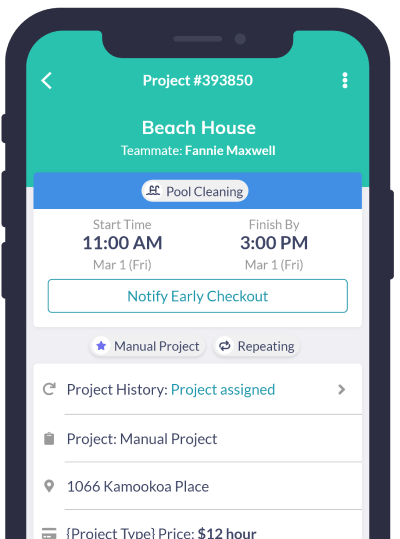Leverage Value-Added Accounting for Scalable Growth
Before we get into the details, take a moment to think about your business. What do you love about it? What is your vision for the future? You probably didn’t mention anything about reconciling accounts or tracking down receipts, and that’s okay.
Unfortunately, many rental owners overlook the purpose and importance of implementing good Airbnb accounting practices until things have started to take a turn for the worse. Luckily, just by reading this paragraph you already have more knowledge to prepare you for a successful financial future.
The key is to treat accounting as an asset, not a liability. With liabilities, you typically seek to minimize them, avoid incurring additional costs, and hope they don’t turn you upside down. With assets, however, you nurture them, invest in capital improvements, and use them to generate positive financial results.
By choosing to take this “asset view” of accounting, you can begin to leverage the tools and processes discussed here to help your vacation rental business run more efficiently.

4 Accounting Pitfalls to Avoid When Running a Vacation Rental
Below, we highlight common accounting pitfalls that short-term rental hosts face and offer advice on how to make the right decisions for your business.
Pitfall #1: Not Following Trust Accounting Practices
If you are managing or planning to start a short-term rental property business, it’s crucial that you understand the concept of trust accounting. It might sound like a way for wealthy families to split their inheritance, but as a practice, it simply refers to managing money on someone else’s behalf.
This is especially important if you do not own the property you oversee. In this case, as an intermediary that helps owners list their dwellings and handles money from guests, your role is to ensure that owners receive the correct payments by handling their funds appropriately.
You might be wondering, am I required to do trust accounting?
Many states regulate the use of escrow accounts to hold advance deposits and monies held on behalf of owners. If you are not using separate escrow accounts to hold these funds, “commingling” of funds occurs and can result in heavy fines and even loss of a business license.
While state requirements differ, several require two escrow accounts, one for advance deposits and another to hold “earned rentals” between the time of guest departure and the time of payment to the owner and property manager.
While this tracking can be tedious, good trust accounting practices early on can safeguard your business from unplanned deficits and help you improve owner satisfaction with timely and accurate payments.
To ensure that you follow the proper regulations using the right systems, you should always consult an accredited accounting firm.
Pitfall #2: Only Using Built-In PMS Modules for Accounting
Historically, the belief has been that if you want good trust accounting and owner statements you have to choose a property management software (PMS) with built-in trust accounting functions.
The problem is those systems are not tried and true accounting systems, aren’t very flexible, and don’t provide much in automation functionality or integrations with other time-saving applications.
Ultimately, company managers should choose a PMS based on its performance on property management functions, not a tradeoff of accounting capabilities. Why not select the best service to drive bookings, create an attractive website, communicate with guests, integrate with other software, and manage your different channels?
Trying to get the equivalent of a hole-in-one for your business software solutions seems like a good way to reduce overhead, but it is not sustainable nor efficient if you plan to manage more than a handful of properties.
Remember, treat accounting like an asset. Select professional accounting software to handle your financial data, not a PMS.
We typically recommend QuickBooks for small-to-midsize companies or Sage Intacct for mid-to-large companies. To automate the transfer of data from your PMS into your accounting system, opt for a tool like VRPlatform™.
Pitfall #3: Not Handling Property Expenses Appropriately
It’s especially important to draw the lines between different operating accounts when dealing with property expenses, or money spent on behalf of a vacation rental owner.
Managers who don’t consistently use the same accounts for property-related expenses will find it very tedious to go back and determine what they are owed. It’s best to choose one account to pay for expenses on behalf of the owner.
Pitfall #4: Not Deferring Rental Revenue
A key concept of vacation rental accounting is that rental deposits received in advance of a guest’s stay should be deferred.
Until the guest has checked in or completed their stay, that money should be held in a “Rents-in-Trust” escrow account and recorded as a liability (deferred income) on the balance sheet until the date of the guest’s stay, typically in a “Rents-in-Trust – Rental Deposits” account.
The reason handling funds this way is so important is because it protects your company in the event that the guest cancels, shortens, or is otherwise granted a refund on their reservation. By holding the money outside of your company’s operating account until the date it can be transacted, you mitigate the risk of having to pay back money you may have already spent.
In your accounting workflow, you would use a rental deposit invoice on the date the deposit is received. On the date of the guest’s stay, you’d use a rental invoice that details the guest’s charges (rental income, cleaning fees, taxes, etc.) and log a negative rental deposit to reverse the initial entry.

Use Good Accounting Practices to Run a Successful Airbnb Business
More so than other types of real estate, Airbnb hosts must have nimble processes in place, primarily because of the sheer volume and frequency of the transactions they manage.
At a bare minimum you need to ensure every dollar received is held in the right account and the proper amounts are paid out to the right parties, but that doesn’t even begin to help you achieve your own financial targets.
If you manage less than five properties, you might be able to make do with low-tech, nose-to-the-grindstone accounting. However, manually tracking money that flows through your property management system while trying to earn your own company a profit is a cumbersome process that only gets more complex as you take on more business.







